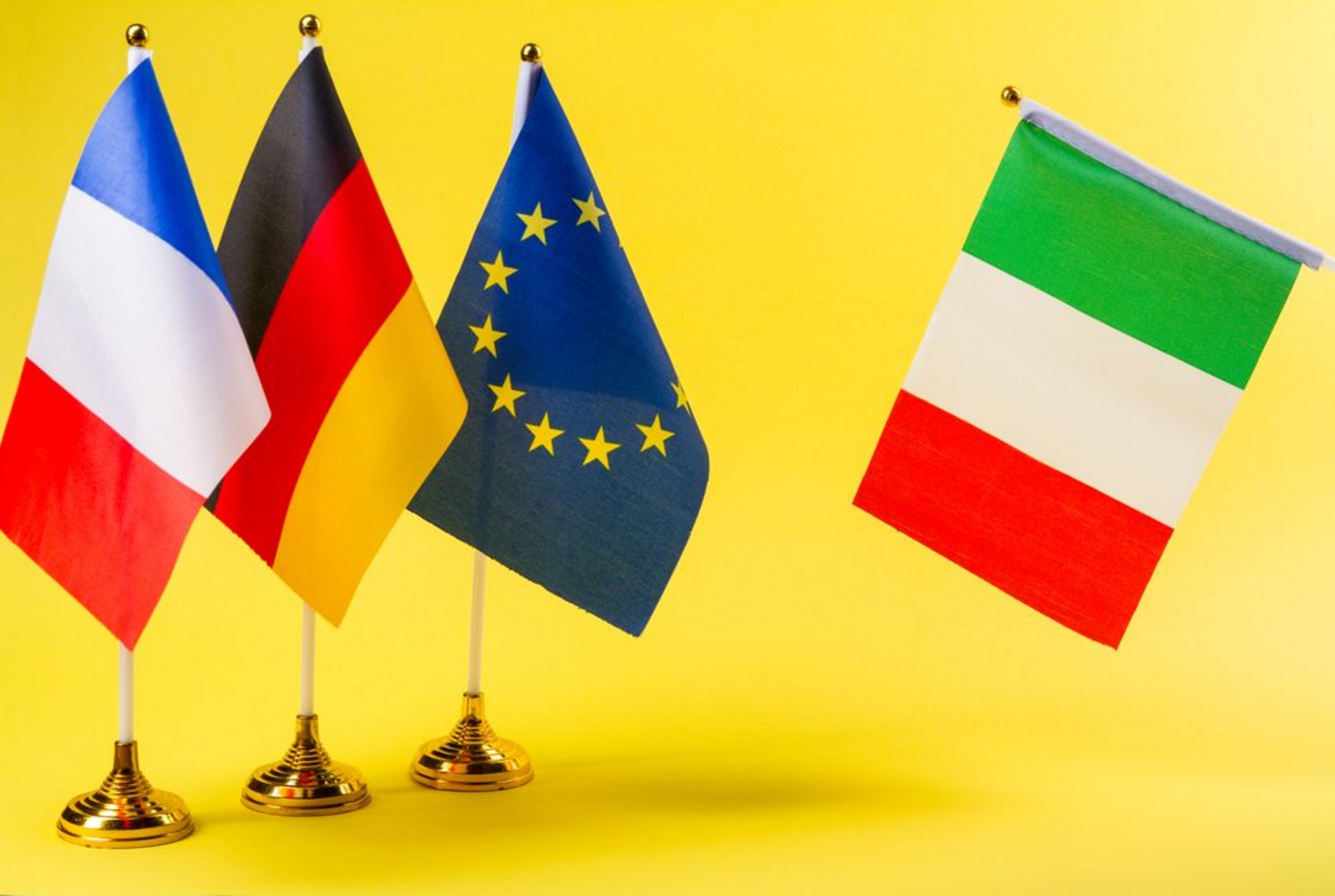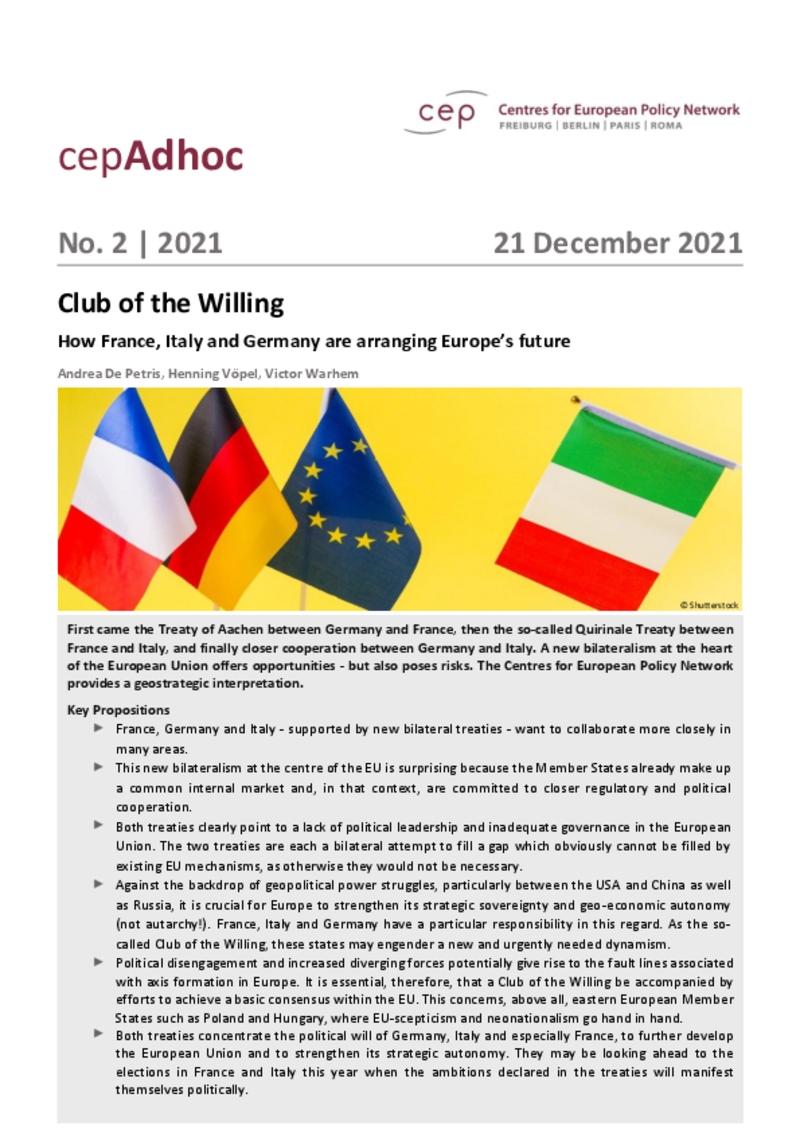
EU Treaties & Institutions
Club of the Willing: How France, Italy and Germany are arranging Europe’s future (cepAdhoc)
cepAdhoc
This is the result of an analysis by the Centres for European Policy Network (cep). The European policy think tank with offices in Berlin, Paris and Rome examined the Franco-German Treaty of Aachen from 2019 and the Franco-Italian Quirinal Treaty from November this year for this purpose.
"The new bilateralism in the midst of the EU holds opportunities and risks," says cep CEO Henning Vöpel, who wrote the study with cep lawyer Andrea De Petris in Rome as well as cep economist Victor Warhem in Paris. The three scholars see the treaties as a reaction to a vacuum of leadership and an expression of a deficit in governance. "The new bilateralism can serve to restore the EU's capacity to act. Despite the risk of unleashing further centrifugal forces, this could be the seed for a reform of the Lisbon Treaties. Such a reform can only be initiated by the willing", says De Petris with regard to the three contracting parties.
According to Vöpel, Europe is paralysed above all by the current unanimity principle. "Countries like Poland or Hungary exploit this in favour of their interests. The unanimity principle therefore does not create a symmetry of influence, but an asymmetry of ambitions," stresses Vöpel, who considers the new bilateral treaties to be the cornerstone for the formation of a club of the willing. "The fact that the dynamism of these three countries is now being pooled offers the chance to overcome the EU's ongoing paralysis," Warhem explains. Germany, France and Italy together generate about 70 per cent of the Eurozone's gross domestic product.
Download PDF
| Club of the Willing: How France, Italy and Germany are arranging Europe’s future (cepAdhoc) (publ. 12.21.2021) | 282 KB | Download | |
 | |||




